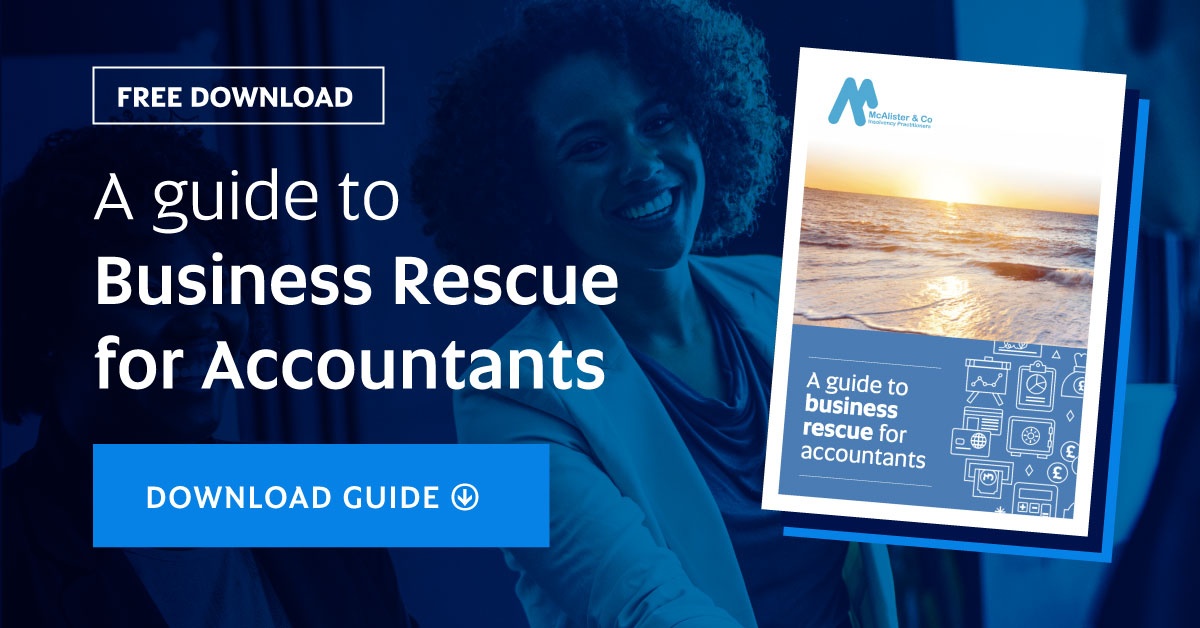As a business owner, it can be easy to panic if you receive a county court judgement (CCJ) through the post, especially when so much is at risk. But, if you act quickly, it is possible to work something out with the court that is manageable for you. In this blog post, we will explain exactly what a CCJ is and what you need to do should you find yourself in this situation. You may wish to contact an insolvency practitioner for expert advice, especially when your business is at risk.
What is a county court judgement?
County court judgements occur when someone (a ‘claimant’) takes action if you owe them money. This will be due to your inactivity to responding to their County Court Claim Form. These forms are sent when a claimant intends to use the County Court system to get money that they are owed. They will be sent via post, or email if you have stated not to be contacted via post, and you must respond to them within 30 days of the date shown on the letter. You should also send back the admittance form, the defence and counterclaim form, or the acknowledgement of service, which will all be included with the county court claim form.
If you do not respond, then you will get a county court judgement (CCJ), which will also be sent via post. This judgement will include who you owe money to, the amount, how to pay it, and the deadline for doing so. If you take too long to respond to the judgement, the court could force you to pay the debt back - even if you cannot afford it. It could also lead to further enforcement action later on.
The first steps when you receive a CCJ
Let’s take things back a bit and look at the steps in more detail.
First, ensure that the claimant has sent you a claim form before issuing a judgement. This stage was brought into action in 2017 to allow both parties more time to come to an agreement. It is called a ‘Pre-Action Protocol for Debt Claims’. A Letter of Claim is a letter sent by the claimant as a warning to you before they take court action. Therefore, you should not receive a judgement out of the blue - you should always be formally warned.
Once you receive a Letter of Claim, you should be given 30 days to respond to the letter before any further action is taken. If you are able to pay everything back within this time, no court action will be taken.

Responding to a Letter of Claim
Use the Reply Form in Annex 1 for your response to a Letter of Claim. In this response, if you indicate that you are seeking debt advice that cannot be obtained within 30 days of your reply, you must provide such details to the claimant. They should then allow reasonable extra time for you to obtain said advice.
At McAlister & Co, our insolvency practitioners can tell you the next steps to take and help you avoid further charges. Find out more and contact us here if you would like further advice.
Before you do anything...
Ensure that your CCJ is actually from the court. This may seem like an obvious point, but some debt collectors can carefully word their letters to make it seem like they’re taking court action. Sometimes, this is used as a scare technique. A genuine CCJ form will be pale blue with a court crest at the top.
What are the consequences of a CCJ?
Your CCJ will stay on the Register of Judgements, Orders and Fines for 6 years, meaning that bank and loan companies will be able to see this information and use it to decide whether or not to give you loans or credit. However, if you pay the full amount of what you owe within one month, it will be removed from the register and your future loans will not be affected. Therefore, we can’t stress enough the importance of responding to a CCJ immediately.
What happens if I can’t pay the full amount within 1 month?
If you pay the full amount after a month, you can get the record of the judgment marked as ‘satisfied’, but it will remain on the register for 6 years. Thus, although you will have this record, bank and loan companies will be able to see that you have paid what you owed.
Always contact the court when you have paid! This way, there will be no complications regarding your payment. Also, make sure you have a proof of payment - never send cash through the post as you will not be able to prove your payment. Instead, use bank transfer, or send a cheque or postal order by post. In this particular instance, because you were unable to pay the debt back within 1 month, you will have to pay a £15 court fee along with the money owed.

You can pay in installments
Your CCJ will include information of who you need to pay, including the name of the individual or their solicitor. If it suits you better, you could organise a monthly standing order with the person or business you owe money to. You are able to make an offer of payment based on your income, meaning the debt may become more manageable to you. Speak to an insolvency practitioner to get expert advice that suits your business’s situation.
These installments aren’t working for me… what do I do?
It is possible to change the amount you pay each month by filling out an N245 application form. It’s important to note, though, that doing this may result in a £50 court fee. Your application will be reviewed by the court and, if it’s rejected, the court can decide on the amount you have to pay each month. Therefore, you might not get a say in how you can pay the money owed.
What if I don’t actually owe any money?
If you do not owe any money, you can ask the court to cancel the CCJ. To do this, you will have to fill in an N244 form, called an application notice, which will involve a court fee of £255. Disputing the claim will mean that you’ll have to go to a private court hearing to explain and prove why you do not owe the claimant any money.
How we can help
At McAlister, we can help you and your business with the steps involved in responding to a Letter of Claim and CCJ. To put your mind at ease, you may find it helpful to speak one-to-one with an insolvency practitioner or debt professional. We do not charge for initial consultations and will assess your situation before carefully guiding you through the process. So, contact us and one of our expert team will be able to help you.

